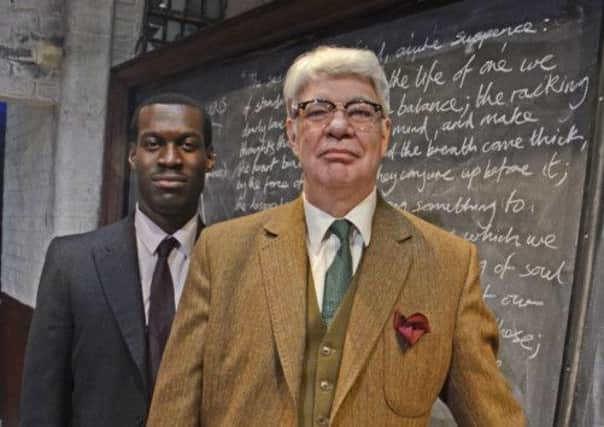Theatre review: To Sir With Love, Edinburgh


To Sir With Love - King’s, Edinburgh
* * * *
Yet it’s the image of those stark, crumbling walls and dangerous rubble-heaps – captured in Mike Britton’s set – that sets the tone for this vivid stage version of ER Braithwaite’s famous 1959 novel about his experiences as a young black teacher in Stepney, in the 1940s.
Adapted by Ayub Khan Din from the novel itself, rather than the 1967 film, Mark Babych’s production for the Touring Consortium and the Royal & Derngate, Northampton, throws itself into Braithwaite’s story with huge theatrical and political energy, capturing both the young and highly educated Ricky Braithwaite’s shock at the fierce levels of racism he encounters everywhere, and – more profoundly – his struggle to recognise that his white pupils are not the English ladies and gentlemen of classic literature, but impoverished and sometimes desperate working class kids in a bombed-out slum, short of aspiration, self-esteem, and a basic sense of entitlement.
Advertisement
Hide AdThe show features a delightful performance from Matthew Kelly as Florian, the pioneering liberal headmaster; and a strong, well-sustained one from Ansu Kabia as Ricky. In the end, the story seems both trapped in its own time – offering a parade of the kind of old-fashioned overt racism that anyone today can safely and smugly condemn – and a little overlong and over-emphatic, in its portrayal of a black hero who can never afford to be less than perfect, spreading light in a troubled place. For students of British social history, though, this is a facinating show; and its 15-strong cast delivers terrific classroom set-pieces, along with bursts of jive dance – around the shabby corridors and desks – that blaze with that unique postwar atmosphere of desperation, damage and hope.